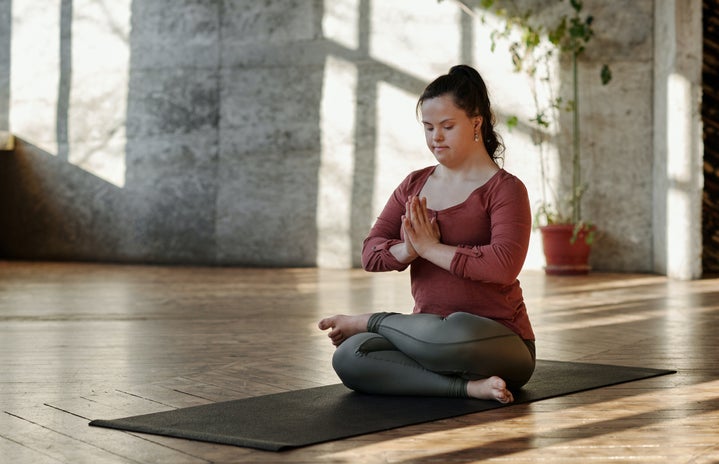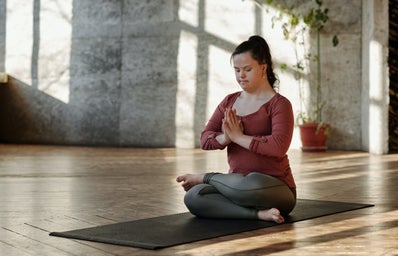By Morgan Whitehouse
Some of my most vivid memories from childhood are when my aunt would come to visit, turning my younger brother’s bedroom into an impromptu guest room and in turn forcing me to share my room with a human whose goal in life was to drive me insane. Aside from the forced sibling bonding time, the memories of my aunt coming to visit always stood out to me because of the strange noises we would hear coming from her room every morning – “ommm, ommm, ommm.”
Being the nosy child that I was, I absolutely had to know what she was doing in there. When she said she was meditating, I lost interest and probably went back to fighting with my brother. My aunt has always been someone who is very in tune with her emotional and spiritual sides, so news like this wasn’t surprising to me. I don’t think I thought much about meditation again until much later in life.
Now that I am a 20-something with 20-something problems, I’d like to think I am much more invested in my overall health and wellness. As I became more interested in yoga, sought out methods to cope with stress and struggled with anxiety as a young adult, this concept of mindfulness and meditation kept coming up.
Doctors would suggest meditation to ease anxiety, yoga teachers would have us practicing both mindfulness and meditation – one of my college classes even dove into the concept of mindful eating. Still, I didn’t do much with the information I was being given and pushed the idea to the side.
As I got closer and closer to graduation, I started suffering from occasional panic attacks. Not the casual, “I’m freaking out” type of panic attack, but the scary, feel like I’m having a heart attack, death is near type of panic attack. If you’ve never had one, I envy you – it’s not a fun feeling. When these continued and started happening more frequently, my doctor once again suggested meditation, and I decided it was time to see what the hype was all about.
Straight out of the dictionary, meditation is described as “engaging in mental exercise (such as concentration on one’s breathing or repetition of a mantra) for the purpose of reaching a heightened level of spiritual awareness.” Meditation has been practiced for thousands of years for relaxation, stress reduction and general emotional well-being.

For me, these practices have been unparalleled in dealing with my stress and anxiety. Today, when I’m hit with a panic attack (which is much less frequently), nothing helps more than simply acknowledging what is happening, letting it happen, and moving on. It’s much less scary when you know what’s going on.
And, with my ability to be mindful, I find that they tend to pass much quicker.
Another common struggle for those of us dealing with stress and anxiety is trouble sleeping. I think all of us – even if you don’t struggle with anxiety – can think of a time when you’re just about to drift off to sleep, and your mind decides to bring up a thought that spirals out of control. With mindfulness and meditation as tools, you can acknowledge the thought, let it pass, and get back to clearing your mind. Focus on your breathing, repeat your calming mantra, or use visualization to form mental images. The great part about meditation is there is no right way to do it – just do what works for you.
So, what does meditation mean to me? Meditation means a way for me to not only deal with, but understand my stress and anxiety. Meditation means coping with and working through my anxiety without medication, therapy payments, or doctors visits. Meditation means I can be the calm, happy, confident person that I know I am. Looks like my aunt had it right all along.


